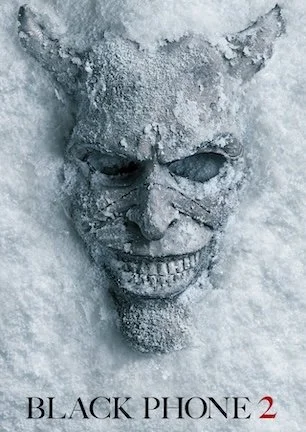Studio: RADiUS-TWC
Director: Alexandre Aja
Writer: Keith Bunin, Joe Hill
Producer: Cathy Schulman, Riza Aziz, Joey McFarland, Alexandre Aja
Stars: Daniel Radcliffe, Max Minghella, Joe Anderson, Juno Temple, Kelli Garner, James Remar, Kathleen Quinlan, Heather Graham, David Morse
Review Score:
Summary:
Accused of his girlfriend’s murder, a young man inexplicably sprouts horns that compel those in his presence to reveal their darkest desires.
Review:
Becoming a pariah in your hometown over a crime you didn’t commit is bad enough. Waking up one morning to find horns inexplicably growing out of your dome is even worse. That’s what happens to Ignatius Perrish when Merrin, the love of his life since boyhood, is murdered and Ig suddenly finds himself on the wrong end of the townspeople’s torches and pitchforks.
Ig gains the opportunity to hoist a pitchfork of his own when the unsightly protrusions on his forehead bestow an unusual ability to prompt those in his presence into revealing their darkest desires. Ig has no idea how or why this unexpected burden has befallen him. He’d rather be mourning or mounting his legal defense. Yet whether it is Heaven or Hell lending him a helping hand, Ig now has the means to dig to the mystery’s bottom, even if it means exposing sinful secrets that are better left buried.
Star Daniel Radcliffe is accustomed to having a stigmatic shadow of his own perpetually coloring perceptions. With “Horns,” Radcliffe ensures that anyone still seeing a lightning bolt instead of gnarled horns has to make a determined effort to resist persuasion from his impassioned performance. As Ig, bespectacled boy wizards are distant thoughts in the wake of Radcliffe’s embodiment of a casual loner with more misunderstood rebelliousness than meaningful menace. Ig is the kind of character that would have been played by Edward Furlong were it the mid-nineties, and Radcliffe gives him all the nuance necessary to be concurrently frustrated, frustrating, sympathetic, and sinister.
Hundreds more words could be said about the strength of the supporting cast. From Heather Graham hamming it up the way she does best as a waitress with stars in her saucer eyes to David Morse delivering a simultaneously subtle and explosive portrayal of Merrin’s grieving father, the casting is superb.
Radcliffe isn’t the only one looking to shake loose a monkey. Author Joe Hill, upon whose novel Keith Bunin’s screenplay is based, once made an effort to disconnect himself from his famous father, not out of shame, but from a desire to succeed without relying on his birth certificate’s last name. Indeed, as Hill’s work continues standing on its own independent merits, his parentage grows less relevant as a bullet point on his writer’s bio. Having said that, a work such as “Horns” makes it nigh impossible to overlook the old adage about the apple not falling far from the family tree.
No matter if Joe Hill would take the comparison as a compliment or as a curse, Stephen King and his fans can rest assured that the terror titan’s storytelling style is safe in the hands of his capable son. Around practically every corner in Hill’s “Horns” are elements that have been features of King’s work for decades. David Bowie songs (“Golden Years”), childhood connections (“It”), small town sins (“Needful Things”), and distinctive character names no one actually has in real life are just a few such carried-over characteristics. With familiar ingredients, Hill still makes the story his own. And then director Alexandre Aja follows suit.
Together, their visions combine for a multifaceted fable that is equal parts fantasy, romance, action, drama, and horror. That unique mixture is so uncommon as a complete fairy tale that “Horns” transcends the commonness of its cinematic conventions.
Aja is guilty of padding the scenery with typical tropes like slow-motion sequences set to popular music and a protagonist in the foreground walking away from a fire in the background. The story, whether the source is Hill’s original text or Bunin’s adaptation, is guilty of wading in occasionally shallow context with its plot developments. For instance, anyone aching for an explanation as to Ig’s horned affliction will find none forthcoming. And Merrin’s real killer may as well be depicted with painted red hands upon exposure of the very first clue.
Despite the abrupt introduction of the premise and no justification for it besides simply, “this is what it is,” you get over the lack of detail rather quickly. The same goes for the absence of revelatory shocks in the whodunit upon realization that all such threads are secondary in prominence to the movie’s real meat.
“Horns” maintains momentum through consistently interesting subtext about redemption, consequence, innocence, compassion, and forgiveness. Once you move past its surface appeal as Cineplex entertainment, “Horns” has far more to offer on interpretive topics that truly matter as a wickedly inventive take on Shakespearean tragedy melded with crime noir.
Review Score: 90






“Sleepwalker” was developed from a seven-minute short from 2024, which explains why its 89-minute runtime goes on 81 minutes too long.